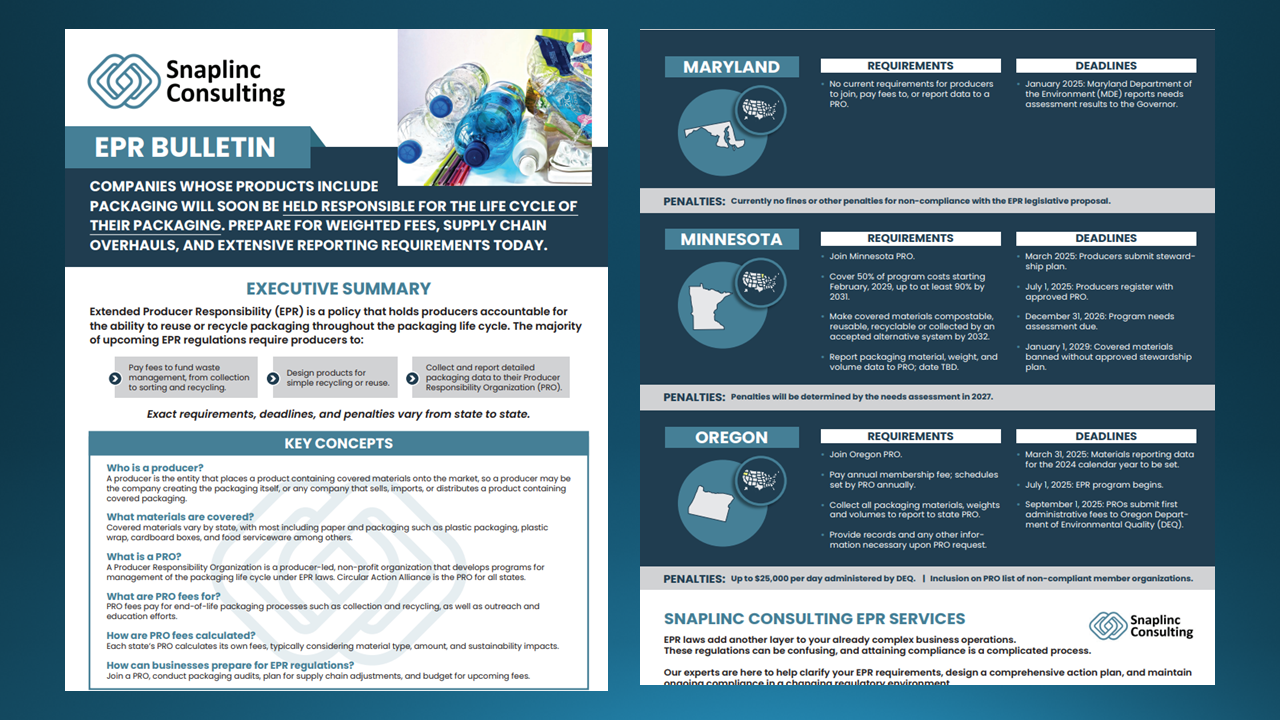Canada Forced Labour and Child Labour in Supply Chains
URGENT UPDATE - Canadian Parliament introduced a new bill entitled "Fighting Against Forced Labour and Child Labour in Supply Chains Act" (Canada S-211) in 2021, which became law in Canada on May 11, 2023. This Act aims to prevent and reduce the risk of forced and child labor in supply chains and imposes reporting obligations on certain entities. There are penalties for non-compliance.
The complexity and tight timeline of S-211 meant that affected companies struggled to become compliant, and an estimate of just 4,000 businesses were able to file their initial reports by the May 31, 2024 deadline. The Canadian government released a 2024 update to the Act, designed to provide further clarity for businesses that must report under S-211 in 2025 and beyond. Read on to learn more about these essential guidance updates.
S-211 Guidance Updates
The guidance updates published in 2024 include critical information on:
Determining whether your organization qualifies as a reporting entity
How to assess whether your company has a business presence in Canada
Which of your business activities trigger a reporting obligation
Determining if your entity is importing goods into Canada
How to submit a report originally developed for reporting obligations in another jurisdiction
The purpose of completing the online questionnaire
The guidance also clarifies that if you prepared reports using previous versions of the online guidance, those reports will be accepted for the 2025 reporting year.
Here’s what you need to know for compliance.
Which Companies Does Canada S-211 Affect?
Government Institutions: This includes any government institution involved in producing, purchasing, or distributing goods in Canada or elsewhere.
Private-sector Entities: This includes any corporation, trust, partnership, or other unincorporated organization producing goods in Canada or elsewhere or importing goods produced outside Canada that:
(a) is listed on a stock exchange in Canada;
(b) has a place of business in Canada, does business in Canada or has assets in Canada and that, based on its consolidated financial statements, meets at least two of the following conditions for at least one of its two most recent financial years:
(i) it has at least CAD$20 million in assets,
(ii) it has generated at least CAD$40 million in revenue, and
(iii) it employs an average of at least 250 employees; or
Other entities prescribed by regulations.
Private-sector categories should be interpreted broadly, extending to similar business organizations such as unlimited liability corporations, limited partnerships, and royalty trusts.
See the full online guidance for more information on determining business presence and whether you’re classified as having assets in Canada.
Does any of that apply to your company? Let us guide you through the process!
What Steps Does Canada S-211 Require?
Annual Reporting: Every entity must, on or before May 31 of each year, report on the steps the entity has taken during its previous financial year to prevent and reduce the risk that forced labour or child labour is used at any step of the production of goods in Canada or elsewhere by the entity or of goods imported into Canada by the entity. This includes:
its structure, activities and supply chains;
its policies and its due diligence processes in relation to forced labour and child labour;
the parts of its business and supply chains that carry a risk of forced labour or child labour being used and the steps it has taken to assess and manage that risk;
any measures taken to remediate any forced labour or child labour;
any measures taken to remediate the loss of income to the most vulnerable families that results from any measure taken to eliminate the use of forced labour or child labour in its activities and supply chains;
the training provided to employees on forced labour and child labour; and
how the entity assesses its effectiveness in ensuring that forced labour and child labour are not being used in its business and supply chains.
Public Accessibility: The reports must be made publicly accessible, including publication on websites.
Approval and Attestation: Reports must be approved by the governing body of the entity, with signatures from members of the governing body.
What Is the Timeline for S-211?
The Act specifies that annual reports must be submitted to the Minister by May 31 of each year starting May 31, 2024.
What Are the Penalties for S-211 Noncompliance?
Every individual or entity that does not adhere to the Act's stipulations is subject to an offense, with potential fines up to $250,000 unless they can demonstrate due diligence, especially in cases involving agents or individuals representing an entity. This includes, but is not limited to, neglecting to submit required annual or revised reports or not adhering to any compliance orders issued under the law.
The government has expressed its determination to ensure accountability at the director and officer level for these disclosures. Under the Act, any director, officer, agent, or mandatary involved in directing, authorizing, consenting to, passively allowing, or actively participating in an infringement is considered complicit and guilty, facing potential penalties. This holds true regardless of whether the entity they represent faces prosecution or receives a conviction.
Recommendations
If you determine that the law applies to you and you already conduct due diligence throughout your supply chain using best practices, plan to compile these into a report that aligns with the Canadian regulation.
If you determine that the law applies to you and you do not conduct best practices due diligence throughout your supply chain, quickly develop a plan to do so in time for the May 31 reporting deadline.
Snaplinc Consulting Support
Snaplinc Consulting can streamline your journey towards compliance with expertise in sustainability and supply chain management. We offer services like gap analysis, policy development, supply chain auditing, training, and reporting assistance. The May 31 deadline is critical, and non-compliance poses risks of hefty fines and reputational damage. Prompt action is not only a legal necessity but also an ethical commitment, enhancing your brand's integrity.
Conclusion
Bill S-211 heralds a significant shift in supply chain accountability in Canada. Our consultancy is ready to ensure your seamless transition to compliance, fortifying your business against risks and fostering ethical global supply chain practices. Contact us for tailored guidance and join us in building a sustainable, responsible business landscape.
For more questions or to request a discovery call, contact us below and/or directly schedule a meeting.



